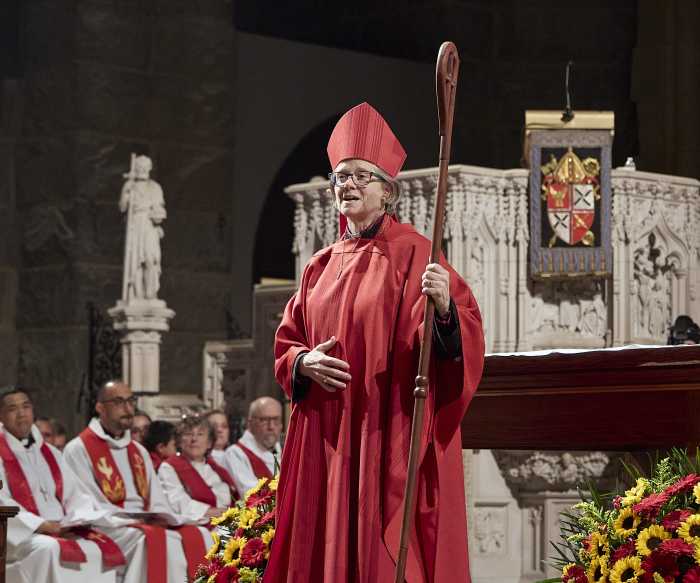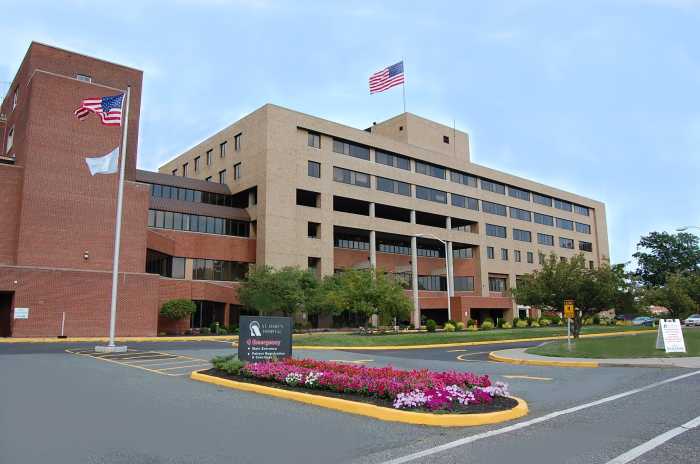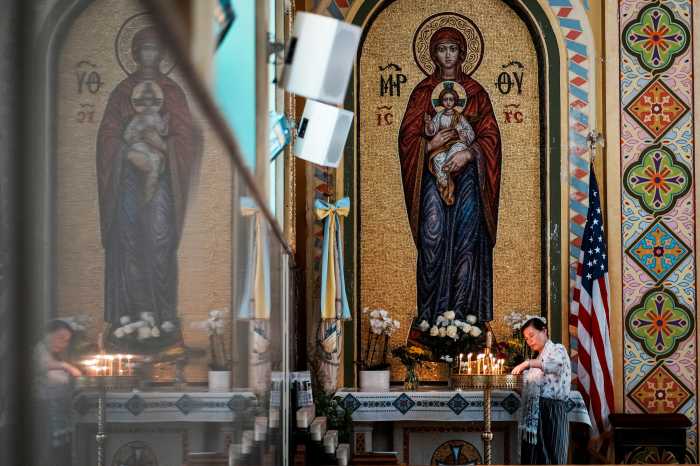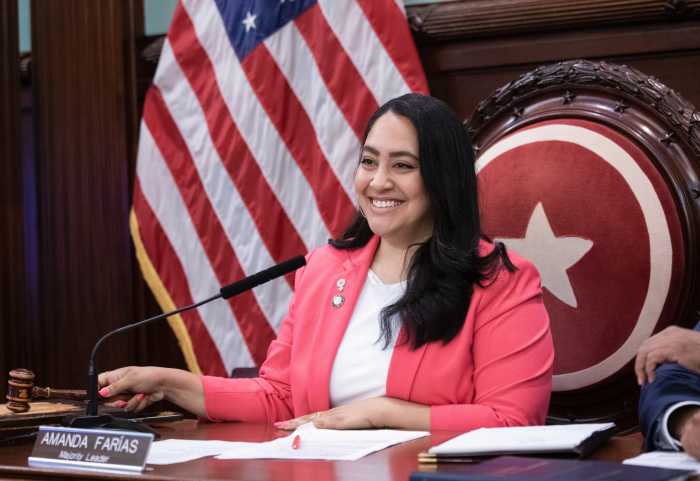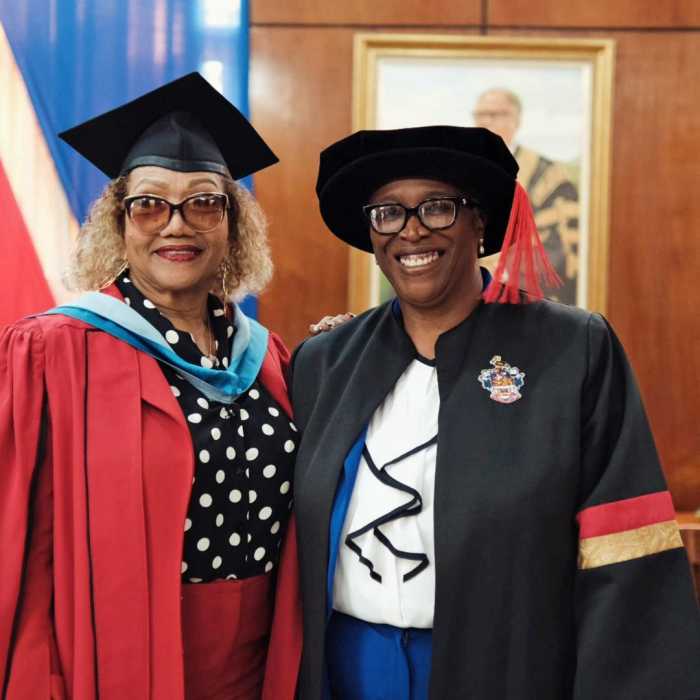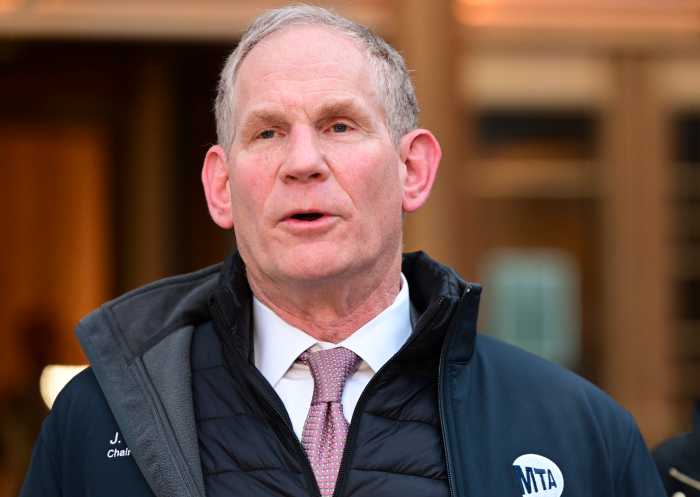Like many others, Aaron Bianco, an out gay Catholic leader, was not expecting to see the headlines on Dec. 18 when it was revealed that Pope Francis had given permission to priests to bless same-sex couples.
“I was shocked, I’ll say that,” Bianco, who hails from New York and teaches theology at St. Elizabeth University in Morristown, New Jersey, told Gay City News in a phone interview.
The announcement was particularly surprising for individuals who recall when, just two years ago, the Vatican clarified that any such blessings would not be allowed because God “cannot bless sin.” At the same time, Pope Francis has often signaled a willingness to inch closer to giving LGBTQ people more respect in the Catholic Church — at least far more than his predecessors — even if those steps have been incremental. Dating back to 2013, when Pope Francis was asked about gay clergy, he responded by asking, “Who am I to judge?”
Further examples of the Pope’s moderate approach to the LGBTQ community continued to emerge in subsequent years, including in 2016 when he said the Catholic Church should “apologize to the person who is gay whom it has offended.” In 2020 he appeared to voice support for civil unions and families led by same-sex couples, though the Vatican later sought to sanitize those remarks. Earlier this year Pope Francis met with members of New Ways Ministry and DignityUSA, two LGBTQ Catholic groups.
The new policy states that the Vatican is opening “the possibility of blessings for couples in irregular situations and for couples of the same sex,” but those decisions are left to “the prudent and fatherly discernment of ordained ministers.”
“To have this huge turnaround was very surprising,” Bianco added. “I’m very happy. I think for non-Catholics, they probably don’t understand how huge this is. We’ve gone from ‘this will never be a conversation’ to ‘OK priests, you have the ability now to go out and bless same-sex couples if they ask you for it.’”
The latest announcement was foreshadowed in a letter written in July and published in October revealing that Pope Francis expressed openness to extending blessings to same-sex unions. Notably, though, the latest development came with conditions: Blessings are permitted as long as they aren’t part of Church rituals or coincide with a civil union.
Nonetheless, the Pope’s latest announcement drew wide praise. Francis DeBernardo, New Ways Ministry’s executive director, issued a statement stressing that “it cannot be overstated how significant the Vatican’s new declaration is.”
DignityUSA, which has a New York-based branch known as DignityNY, said the policy shift represented “an important recognition that the denial of blessings caused great pastoral harm to many and demonstrates a willingness to rethink discriminatory and dehumanizing theology.”
Jeffrey Stone, a leader at DignityNY, told Gay City News in a phone interview that the announcement sends a friendly message to LGBTQ individuals and their loved ones.
“It’s not full acceptance — it’s clear that this is not marriage, and that’s something we’re working toward and hope that will eventually happen — it’s just important, the personal affirmation it gives to many people and the comfort it gives to families.”
Catholic leaders emphasized that the announcement also encouraged Catholic leaders to avoid subjecting members to an “exhaustive moral analysis” when approving blessings for same-sex couples. New Ways Ministry described it as “one more step Pope Francis has taken to overturn the harsh policing of pastoral care all too common under his predecessors,” while Bianco said people are commonly blessed without anyone taking into consideration whether their lives are sinful or not. Both Bianco and DignityUSA noted that many priests have quietly blessed LGBTQ individuals and couples for years.
“I think Francis was making a particular point — why do we hold certain groups like the LGBT community to a different standard than they would other people?” Bianco said. “If a woman comes to parish and the woman asks for a blessing, the priest doesn’t say, ‘Can I first find out about your life?’”
Marianne Duddy-Burke, the leader of DignityUSA, echoed those sentiments, pointing to past statements by Francis expressing discomfort over priests and bishops “putting unnecessary burdens on people and making it harder for people to access what the church can offer them.”
“I think that statement about exhaustive moral analysis is very consistent with Pope Francis’ approach to what good pastoral care looks like,” Duddy-Burke told Gay City News.
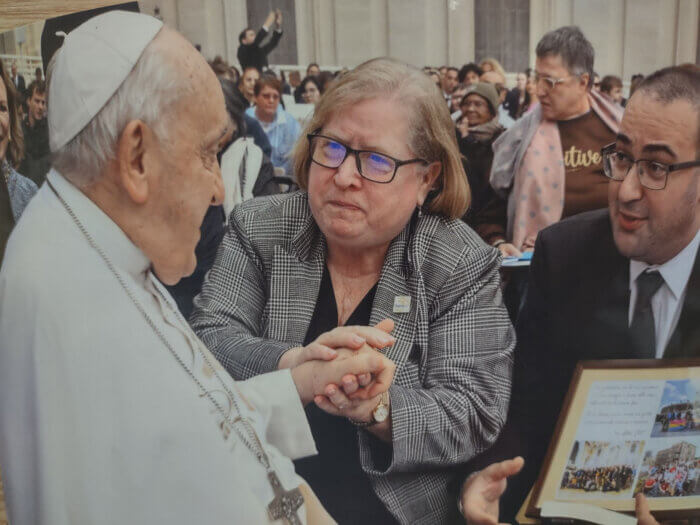
Still, LGBTQ Catholic leaders also raised some lingering questions after the news surfaced.
“There is a book of blessings that priests used to bless all kinds of things — dogs, cars, etc — and I find it strange that you can’t have a formal blessing,” Bianco said. “I have to ask for it and the priest has to come up with it. I don’t know if it was a nod to those who are not going to be happy with it.”
At DignityNY, Stone predicts that there will be some grumbles from those who would like to see Pope Francis take a bolder step in favor of LGBTQ rights.
“I’m sure part of the reaction is going to be, ‘Yes but it is not an endorsement of marriage,’” Stone said. “And we certainly have been calling for that for many years. And we will continue to do so. But I think it is important to acknowledge it as a major milestone, a change of tone, and it just sends a welcoming message that we’ve never seen at this level at the church.”
Out Catholic New Yorkers in other leadership roles have also spoken out in response to the news, including Christine Quinn, who in 2006 became the first out New York City Council speaker and now serves as president and CEO of the city shelter provider known as Win. Quinn described it as an “incredibly powerful step forward that sends a message of hope to a community that has long been disregarded by the Catholic Church.”
“As a lesbian, a Catholic, and a human being who fundamentally believes everyone deserves love and support, this is welcome news, especially during the holiday season — and I hope every diocese and parish embraces this new doctrine without delay,” Quinn said in a written statement. “In this announcement, Pope Francis is telling LGBTQ+ Catholics ‘I see you, I love you, and I value you.’ It is an incredibly powerful step forward that sends a message of hope to a community that has long been disregarded by the Catholic Church.”
Still, Quinn added, “But while this is unquestionably progress, the ultimate goal remains equality for all, with everyone being able to receive the Sacrament of Marriage regardless of who they love.”
According to the New York Times, some of the LGBTQ-friendly Catholic parishes in New York City include the Church of St. Paul the Apostle, the Church of St. Francis of Assisi, the Church of St. Ignatius Loyola, and the Church of St. Francis Xavier. The relationship between the LGBTQ community and the Catholic Church in New York City has a history of friction, as evidenced most vividly by powerful protests such as the 1989 Stop the Church demonstration when ACT UP and Women’s Health Action Mobilization (WHAM!) disrupted mass at St. Patrick’s Cathedral over the Catholic Church’s refusal to embrace safe sex practices, its anti-abortion stance, and its treatment of LGBTQ people and people living with HIV/AIDS. In a recent example, the Brooklyn Diocese came under fire in 2021 after a gay music teacher at a Catholic Church in Queens was fired after he got married to a man.
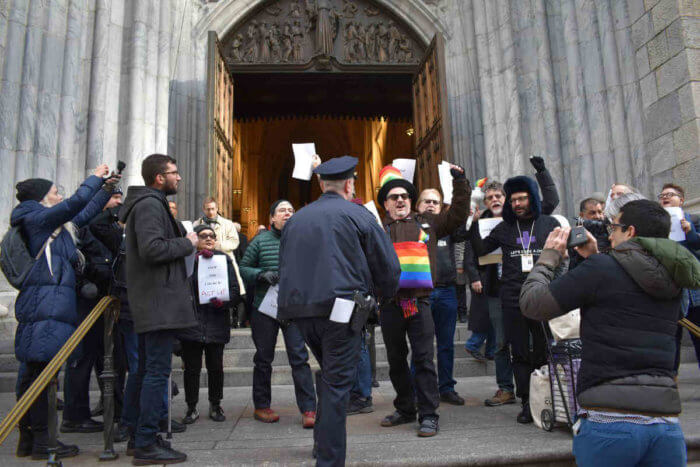
Bianco and Duddy-Burke conceded that the announcement is expected to receive some resistance from certain parts of the Catholic community. Since the announcement, for example, Duddy-Burke said she heard of priests who said they will not play along because they consider such blessings to be a violation of their own conscience. Bianco, for his part, signaled his expectation that it will be a mixed bag and that the United States Conference of Catholic Bishops is already not friendly to Francis.
“Even here, for me, I had to find a parish that I felt comfortable for my husband and I to be at,” Bianco said. There will be parishes that are still not going to jump on board with this,” Bianco said. “I think the rest of the world, other than Africa, is in a different spot where they see these things and they take it and bishops are normally grateful for it.”
Most Catholic Church members, though, should have no difficulty embracing the new normal, Bianco said.
“When it came out yesterday, I started to get lots of phone calls and text messages,” Bianco said. “I would tell you the average person in the pew is happy.”

